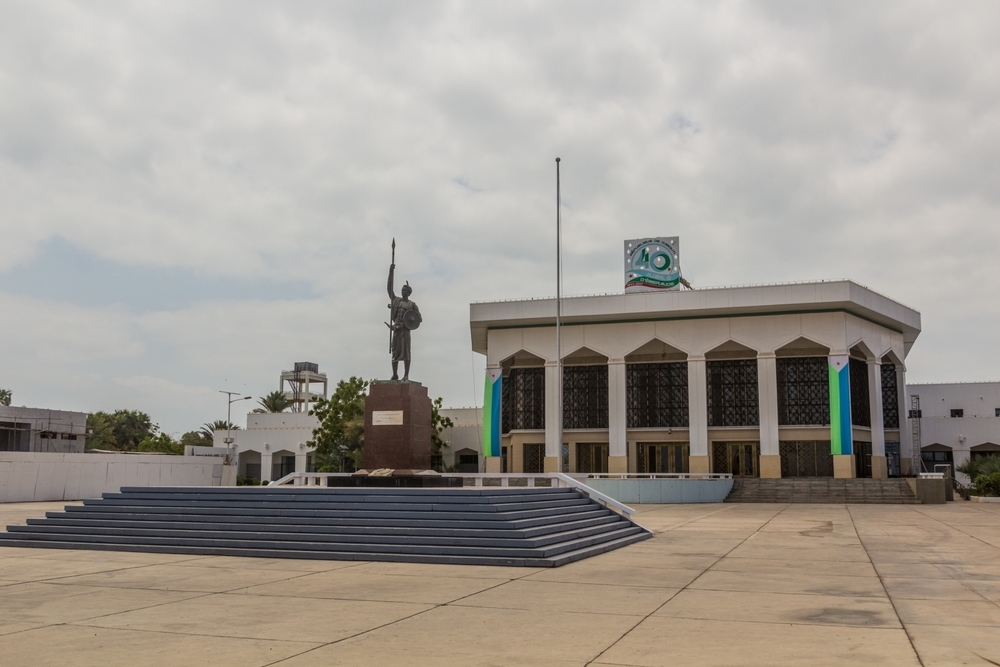April 16, 2024
On November 9, 2023, Djibouti was examined before the UN Human Rights Council (HRC) during the country’s fourth Universal Periodic Review (UPR). Ahead of the review, MENA Rights Group submitted a shadow report, containing a list of key recommendations, which was circulated among reviewing States.
On March 25, 2024, during the 55th session of the HRC, Djibouti informed the Council of its decision to accept 228 out of the 269 recommendations it had received. Djibouti accepted most recommendations related to freedom of expression, press freedom, right to association and to peaceful assembly as well as the fight against gender and racial discrimination.
However, most recommendations concerning the ratification of international conventions were simply “noted” by the Djiboutian authorities. Djibouti also noted recommendations pertaining to the “prohibition of discrimination based on gender, gender identity or sexual orientation”. In concrete terms, the government of Djibouti announced that it will take no steps towards implementing the said recommendations.
National Human Rights Commission
Djibouti accepted all six recommendations regarding the National Human Rights Commission, Djibouti’s National Human Rights Institution (NHRI), including the ones asking for full compliance of the institution with the Paris Principles. This is in line with the delegation’s statement during the UPR, claiming that a new legislation was being drafted which would strengthen the independence of the NHRI by having its members elected by “civil society” and by strengthening the immunity of its members. This law will need to be voted upon in Parliament.
The law currently governing Djibouti’s NHRI has serious shortcomings, particularly with regards to executive control over the appointment process, with members still appointed by the executive. The independence of the NHRI is also limited because their reports need to be approved by the government before being published, as shown in MENA Rights Group’s report to the Sub-Committee on Accreditation of the Global Alliance of NHRIs.
MENA Rights Group will continue to closely monitor Djibouti’s NHRI to report on its more thorough compliance with the Paris Principles, or lack thereof.
Fundamental rights and freedoms
While the right to freedom of expression is protected under the Constitution of Djibouti, it remains extremely restricted by law and in practice. The criminalisation of defamation and public slander is a cause of concern, as well as the lack of independent media in the country. Furthermore, the current law on freedoms of peaceful assembly and association is very restrictive and therefore many local NGOs working on politically sensitive topics cannot operate freely.
In light of this situation, 14 countries issued recommendations for Djibouti to protect the right to freedom of expression, and seven countries made recommendations regarding the right to freedom of association and peaceful assembly. All these recommendations were accepted by the Djiboutian authorities, including those pertaining to the elimination of provisions criminalising defamation, the removing of restrictions on the creation of media, the guarantee of all three fundamental rights and the protection of all individuals promoting them from reprisals.
Yet in practice, the implementation of these recommendations seems compromised. During the adoption of Djibouti’s UPR on March 25, 2024, Kadar Abdi Ibrahim, a prominent Djiboutian human rights defender, stated in his intervention that NGOs can hardly imagine how these recommendations could be implemented given the almost total absence of independent voices in the country. He also reminded the Human Rights Council that following his participation in the UPR pre-session at the UN in 2018 ahead of Djibouti’s previous examination, his passport had been confiscated by the authorities and that he has been unable to leave his country ever since. His case was included in the Secretary-General’s annual report on intimidation and reprisals against those cooperating with the UN every year since 2018.
Djibouti’s international commitments and cooperation with UN human rights mechanisms
Djibouti merely “noted” all the recommendations pertaining to the ratification of human rights treaties or their protocol, rejecting the 32 recommendations asking the State to ratify one or several of these instruments. The human rights treaties rejected include the International Convention for the Protection of All Persons from Enforced Disappearances, the Optional Protocol to the Convention on the Elimination of All Forms of Discrimination against Women and the Optional Protocol to the Convention against Torture and Other Cruel, Inhuman or Degrading Treatment or Punishment.
Furthermore, Djiboutian authorities rejected the five recommendations asking the country to extend an open invitation to UN Special Procedures.
To conclude, we call on the Djibouti authorities to reconsider their decision not to ratify more international conventions and to ensure greater implementation of the treaties already ratified.
Next steps
The authorities will have to implement the accepted recommendations ahead of the country’s next review, which will take place in 2028.







